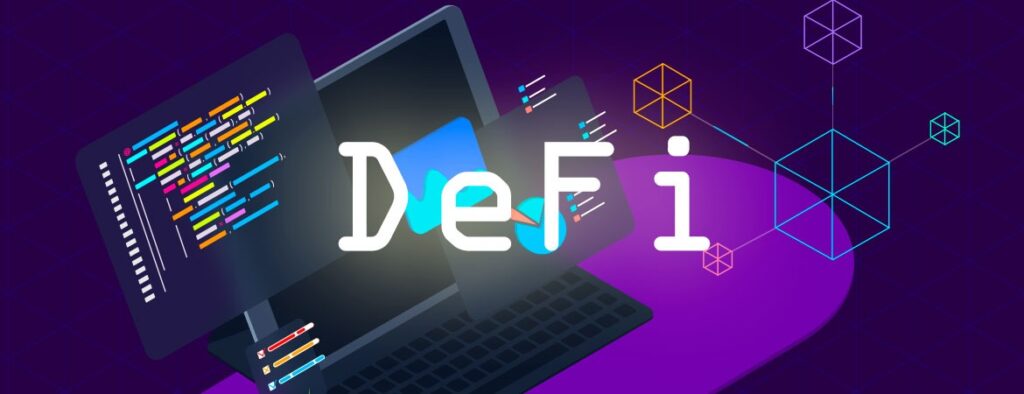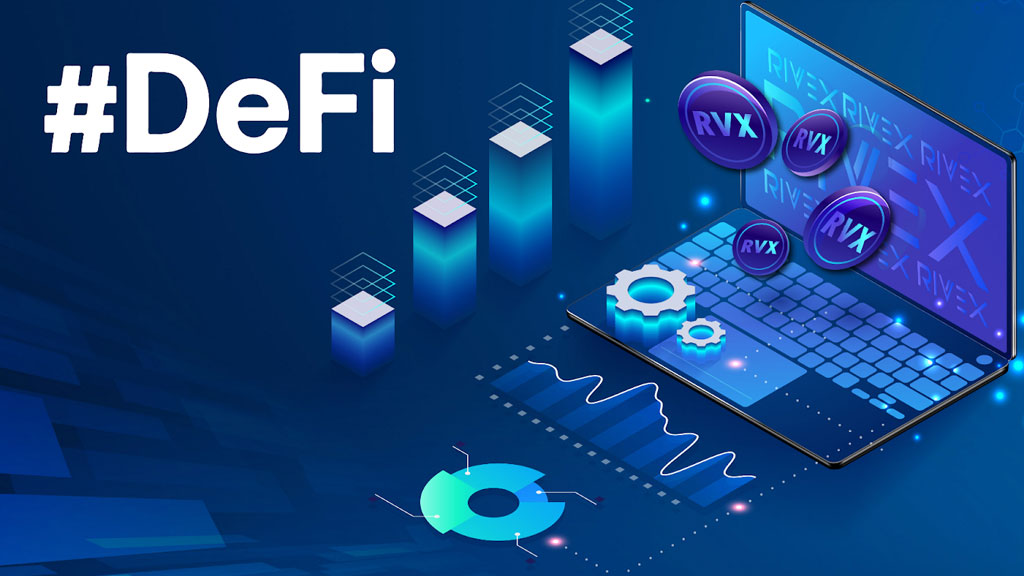
As the world becomes more digital, the financial industry has undergone significant changes in recent years. Decentralized Finance (DeFi) is the latest innovation that has disrupted the traditional financial sector. DeFi refers to a new financial system that is built on a decentralized network using blockchain technology.
Decentralized Finance, or DeFi, has been making waves in the financial world in recent years. It is a new financial system that operates on a decentralized blockchain network, allowing users to access financial services without the need for intermediaries such as banks.
DeFi has been gaining popularity due to its potential to revolutionize the traditional financial system by providing more accessible, transparent, and secure financial services. In this article, we will explore why DeFi is so important and how it is changing the way we think about finance.
What is DeFi?
The core idea of DeFi is to take complex financial services and products traditionally offered by legacy financial institutions, codify their component rules and procedures, and convert them into self-executing code.
Simply put, these are automated, self-executing products and services, where the user/consumer directly interacts with the application, without the interference from any third party intermediaries such as banks, insurance companies, agents, etc. The benefits are a 24/7, instantaneous service with very low to no cost.
Think of it as an automated vending machine. A vending machine is a 24/7 no-cost service, with no interactions from third party intermediaries.
DeFi applications, of course, are much more complex than a vending machine and can provide services beyond simply purchasing a soda or a bag of chips. Furthermore, because every activity in the economy is transaction based – be it retail or gaming or tech or social media – DeFi applications go beyond financial services and would be integrated in any service or product we use today, while connecting the “virtual world” with the “physical world.”
What are the benefits of DeFi?
- Accessibility and Inclusivity
One of the most significant advantages of DeFi is its accessibility. Anyone with an internet connection and a compatible wallet can participate in the DeFi ecosystem. This makes it easier for people who have been excluded from the traditional financial system to access financial services.
In traditional finance, people in developing countries or low-income areas may find it challenging to access financial services due to the high costs and lack of infrastructure. With DeFi, users can access financial services from anywhere in the world, without the need for intermediaries.
2. Transparency and Security
Another critical advantage of DeFi is transparency and security. In traditional finance, financial institutions are responsible for managing and securing user data and assets. This centralization makes it easier for hackers to target these institutions and access sensitive data.
With DeFi, users have complete control over their assets, and transactions are executed through smart contracts that are transparent and secure. This reduces the risk of fraud and hacking, as there is no central point of failure.
3. Interoperability
DeFi platforms are built on open-source software, which allows for interoperability between different protocols. This means that users can access a wide range of financial services and assets from different platforms, all within a single ecosystem.
This interoperability also means that DeFi platforms can collaborate and work together, leading to a more integrated and efficient financial system.
Decentralization
The most significant advantage of DeFi is its decentralization. In traditional finance, financial institutions act as intermediaries, managing transactions between users. This centralization can lead to corruption, manipulation, and unfair practices.
With DeFi, there is no need for intermediaries, as transactions are executed through smart contracts on a decentralized network. This ensures that the system is fair, transparent, and free from manipulation.
Impact of DeFi on Traditional Finance
The rise of DeFi is disrupting the traditional financial sector, and it is expected to have a significant impact on the industry. Here are some of the ways DeFi is transforming traditional finance:
4. Disintermediation
The decentralized nature of DeFi eliminates the need for intermediaries, such as banks and other financial institutions. This can reduce the costs associated with financial services and improve the efficiency of the financial system.
5. Increased Accessibility
DeFi makes financial services more accessible to people who have been excluded from the traditional financial system. This includes people in developing countries, low-income areas, and people who do not have access to traditional banking services.
6. Transparency and Security
The transparency and security of DeFi reduce the risk of fraud and hacking. This can help build trust in the financial system and encourage more people to participate in financial services.
DeFi risks and security considerations: Protecting your assets
Investing in DeFi, like any other investment, comes with its own set of risks and rewards. It’s important to understand these risks and take appropriate measures to protect your assets.
One of the key risks in DeFi is smart contract vulnerabilities. Smart contracts are the backbone of DeFi applications, but they are also prone to bugs and exploits. These vulnerabilities can lead to significant losses if exploited by malicious actors. Therefore, it’s crucial to only invest in DeFi projects that have undergone thorough smart contract audits by reputable firms.
Another risk factor in DeFi is the lack of insurance. Unlike traditional finance, where deposits are often insured, most DeFi platforms do not offer any form of insurance. This means that if a platform is hacked or suffers from a smart contract failure, users could potentially lose all their invested funds. However, some DeFi projects are introducing decentralized insurance solutions to address this issue and provide a safety net for users.
Moreover, DeFi’s reliance on collateralization also poses a risk. Most DeFi platforms require over-collateralization, meaning users must deposit more than they borrow. If the value of the collateral falls significantly due to market volatility, users may face liquidation of their assets. Hence, it’s essential to monitor your collateral’s value and maintain a healthy collateralization ratio.
While these risks may seem daunting, they can be mitigated through diligent research, diversification, and proper risk management. Always do your own research before investing, diversify your investments to spread risk, and never invest more than you can afford to lose.
Regulatory challenges and future outlook for DeFi
The regulatory landscape of DeFi remains a significant challenge. As a rapidly evolving sector, DeFi has outpaced the development of regulatory frameworks, creating a grey area of legal uncertainty.
Governments worldwide are grappling with how to regulate DeFi while balancing the need for innovation and consumer protection. This lack of clear regulatory guidelines can pose risks for users and hinder the wider adoption of DeFi. However, regulators are increasingly recognizing the potential of DeFi and are working towards formulating regulatory frameworks to ensure its safe and sustainable growth.
Looking towards the future, DeFi is set to continue its transformative impact on the financial landscape. Its potential to democratize access to financial services, enhance efficiency, and foster financial sovereignty marks a significant shift from traditional financial systems.
However, for DeFi to realize its full potential, it needs to address key challenges, including scalability, user-friendliness, and security. Advancements in blockchain technology and the development of Layer 2 solutions are expected to address scalability issues, while ongoing efforts to improve user interfaces and experience can help make DeFi more accessible to the average user.
Moreover, as DeFi matures, we can expect to see more integration with traditional finance. Rather than completely replacing traditional financial systems, DeFi can work alongside them to create a more inclusive and efficient financial ecosystem.
DeFi – reshaping the financial industry as we know it
Blockchain technology and DeFi is relatively a nascent technology. But due to the increasing interest of governments, corporations, and financial institutions around the world in the implementation of this technology, and the many projects that are being examined and evaluated globally, it is very likely that in the foreseeable future – 10 to 15 years from now – DLT will be the “rails” of all financial products and services.
Banks and financial and economic activities will be automated, run by codes and algorithms, with no human interaction at any stage of the process, essentially a self-driving bank. In the age of Economy-of-Things, where machines can talk to each other, DeFi will enable every product or service to become self-driving. The concept of “embedded finance” – integrating financial services with a traditionally non-financial, service or product – will be significantly enhanced.
An example is when an online store offers “buy now pay later” option that converts the purchase into an automatic loan from a third-party lending institution. Imagine if your home gym equipment offers you rewards tokens as an incentive for your performance, and you can then send these tokens from your gym equipment to pay for your loan.
DeFi can enable such a scenario. You can put your imagination to work, and the possibilities are endless. In addition, DeFi will play an integral and instrumental role in the evolution of the metaverse by enabling transactions between the virtual and the physical world.
As the technology matures and projects are tested and examined thoroughly, DeFi products and services will become compliant and secure and with the appropriate auditing and monitoring, to ensure users’ security and privacy. This is essential for any technology to become mainstream.
This transition is taking place, and DeFi shouldn’t be thought of as an interesting concept, but an active transformation that is taking place as we speak. DeFi is indeed the future of finance.






